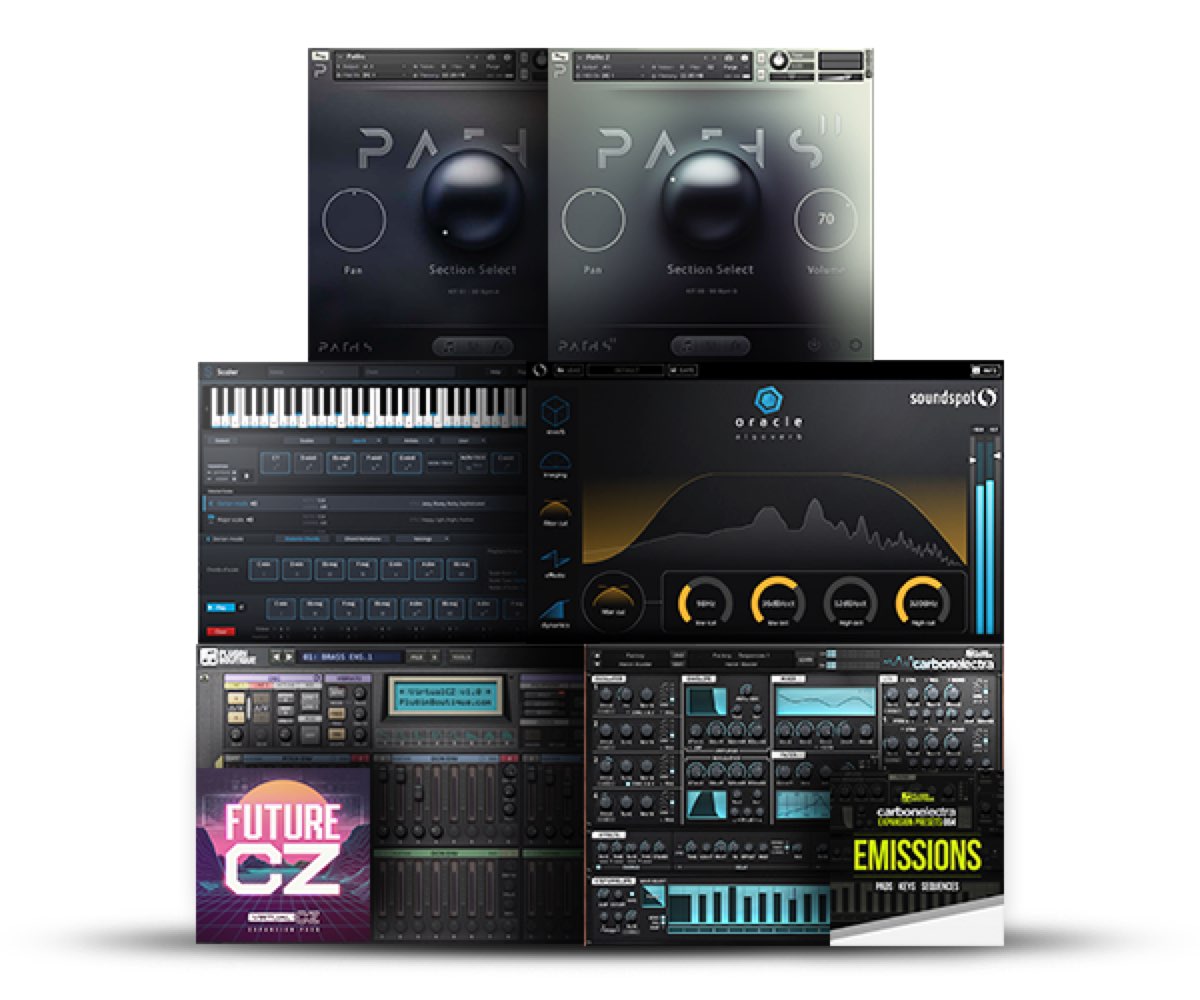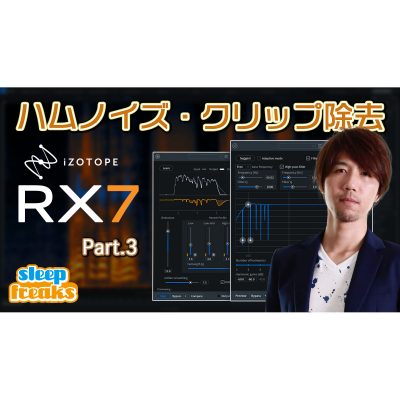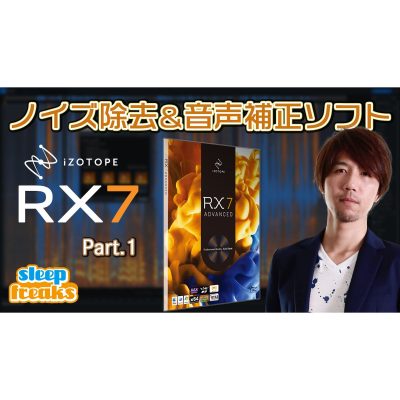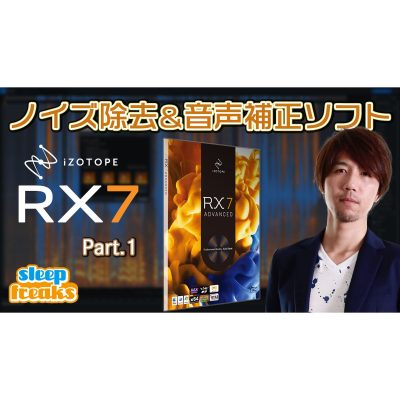Xfer Records SERUM - How to use 3. Modulation controls
Understanding the sections that add movement to sound
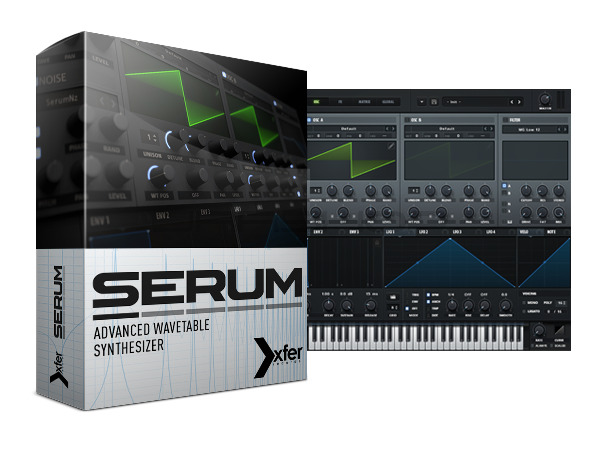
This this article, we will focus on modulation using the LFO.
Synthesizers use this modulation, and is crucial in determining what kind of motion is added to the sound.
By having a deeper understanding of this section, you can create various sounds.
Product site : http://sonicwire.com/product/99927
SERUM – Tutorial video
- 1SERUM How to use ① Basics and customizing presets
- 2SERUM How to use ② Oscillator controls
- 3SERUM How to use ③ Modulation controls
- 4SERUM How to use ④ Easy sound design Tips
LFO section
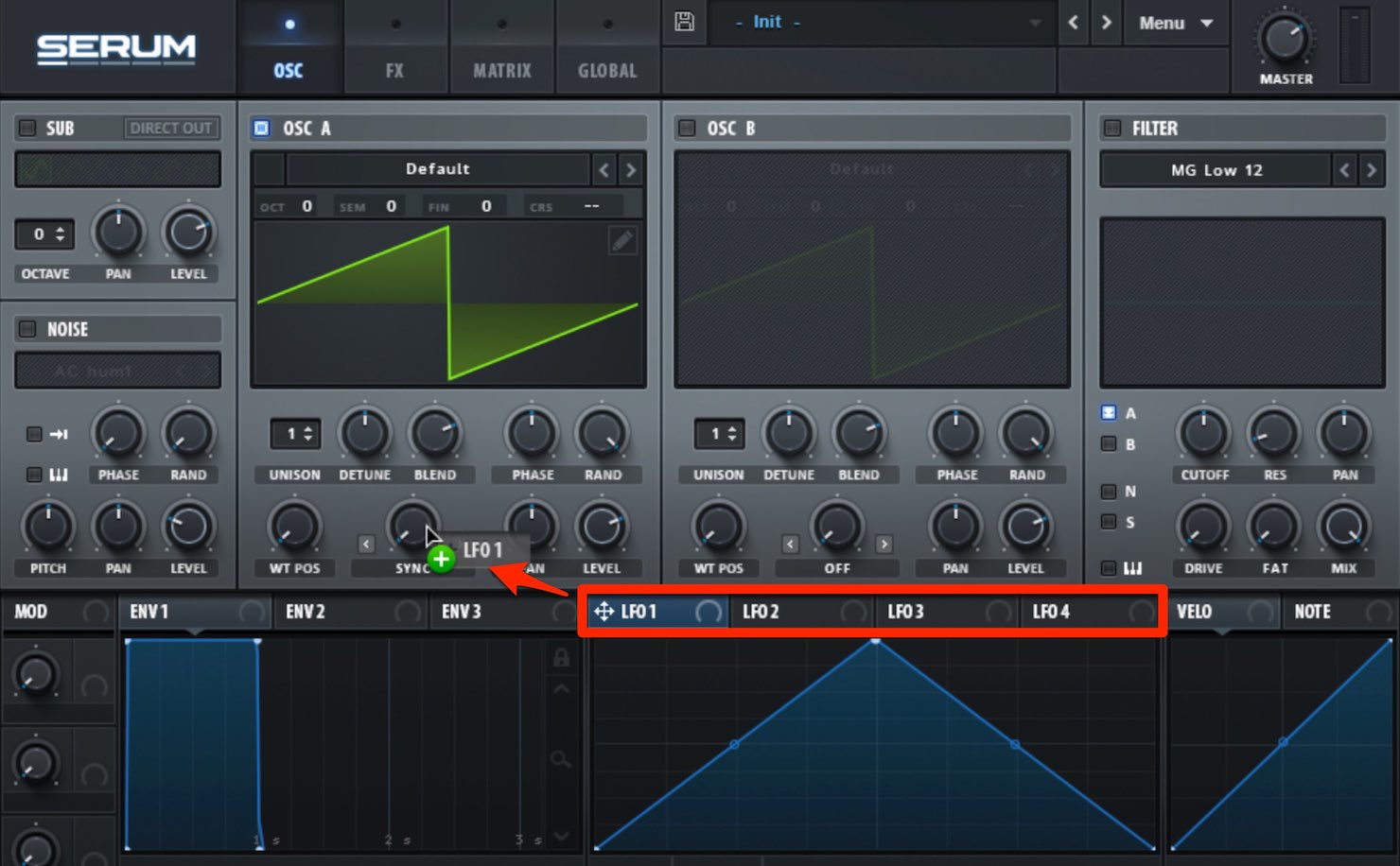
Serum contains 4 LFOs.
By dragging each LFO to a parameter, it can easily be applied.
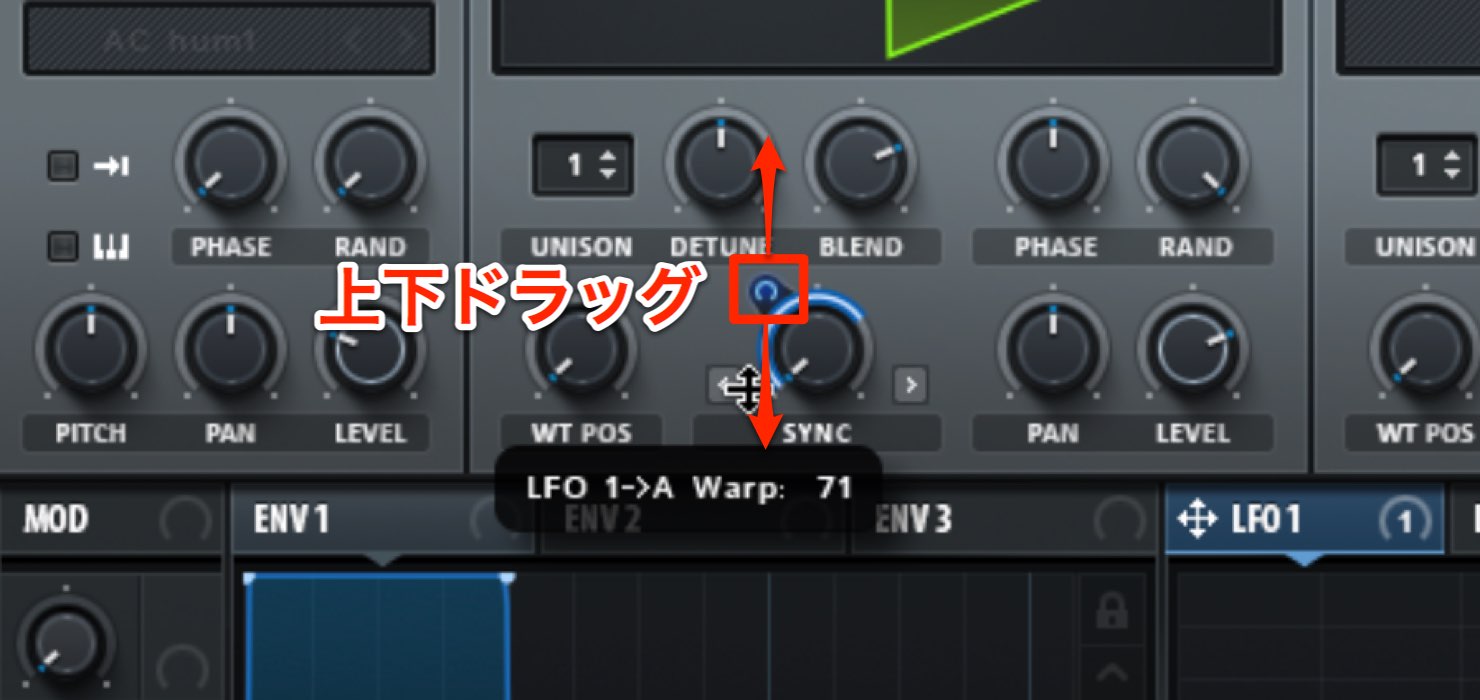
By dragging this area up/down, you can determine how much LFO is applied.
The blue line represents the LFO application span.

There are many presets for LFO types as well.
Find a preset that works for you from the folder icon.

You can change the LFO cycle speed with the “RATE.”

By turning the “BPM” on, the LFO will sync with the song tempo.
The “bar” represents the 4 beat bar, and means that the LFO does one full cycle in a bar.

You can also make detailed changes to the LFO on different parameters as well.
- RISE : Fade in the LFO effect over time
- DELAY : Delay the time it takes to start the LFO
- SMOOTH : Smooths out the LFO movement
Use these tools to allow your sounds to evolve over time.
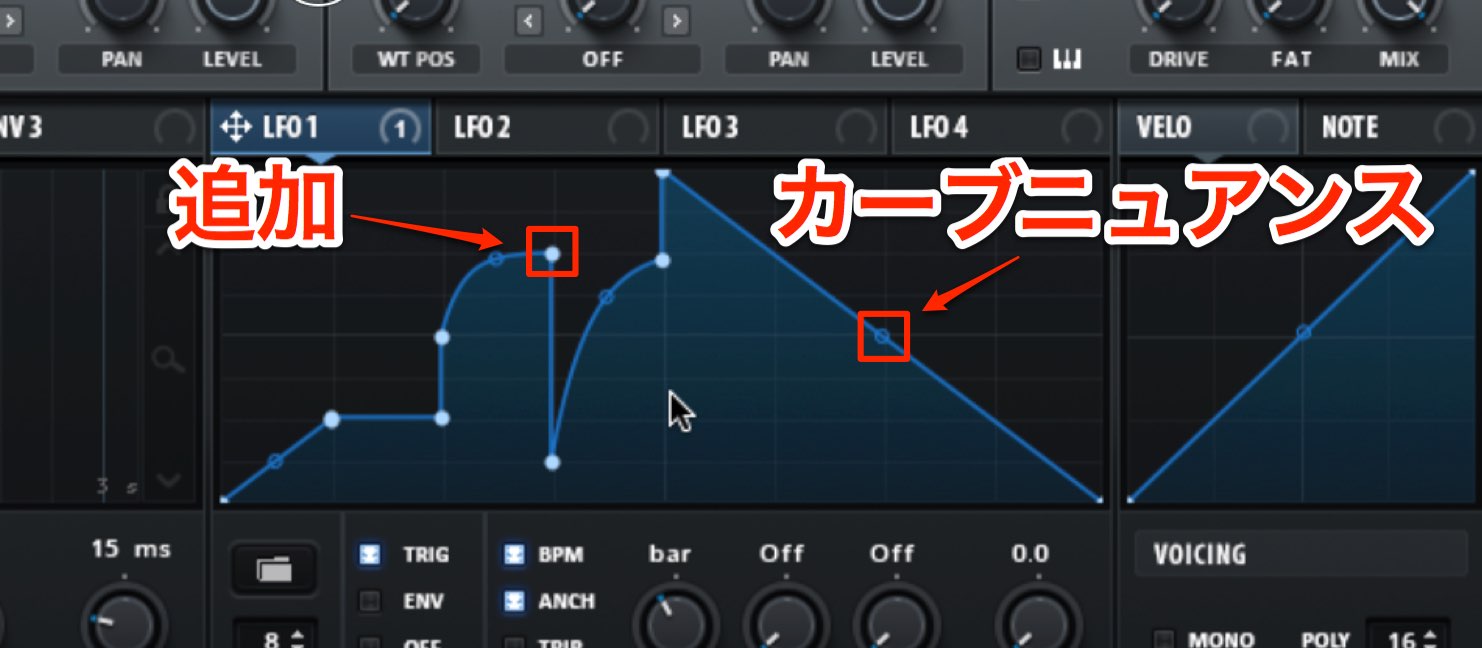
In addition, you can create your own LFO movements as well.
Add point by holding “SHIFT key + click,” and drag the point up/down to create curvature.
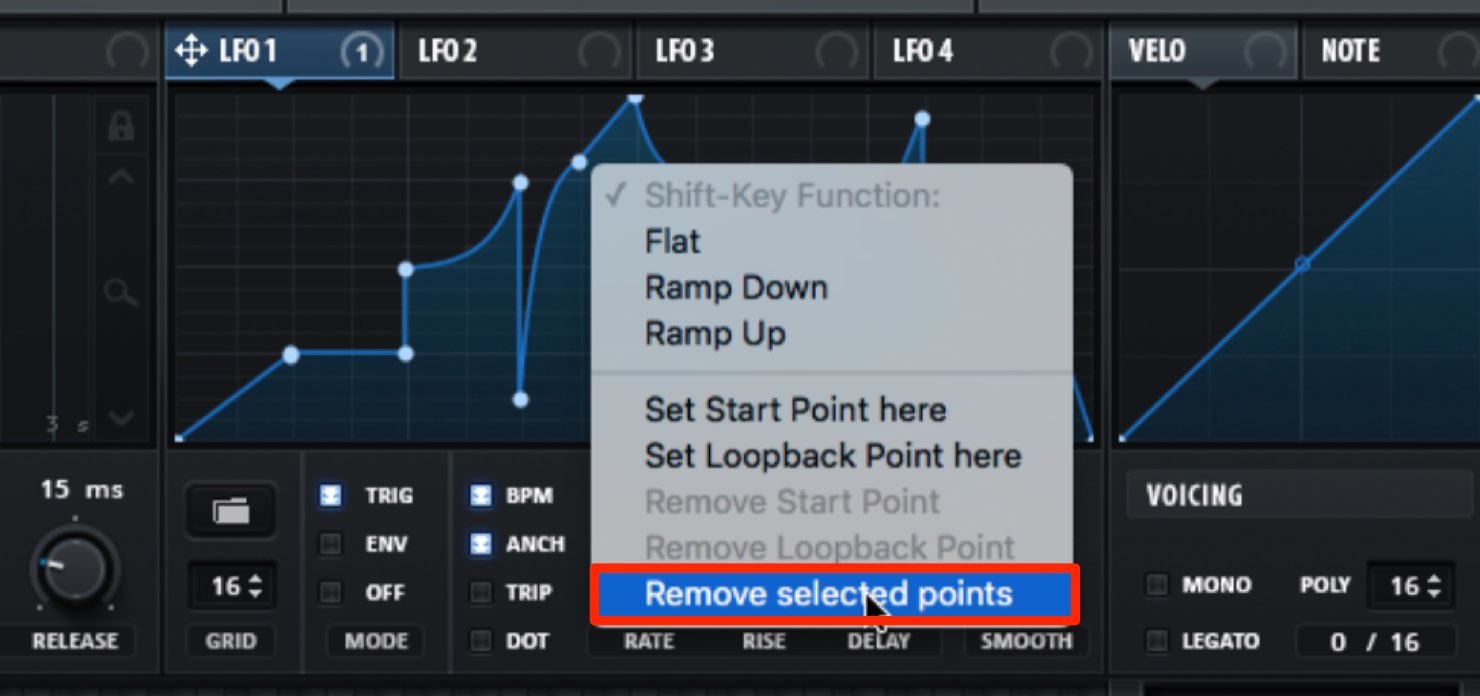
To delete a point, right click on the point, and select “Remove selected points.”

From “GRID,” you can create/edit in subdivided points, via 4th, 8th, 16th, and more.
- Mac : Option
- Windows : Alt
By holding the key above and editing, you can work in the selected grid amount.

From this area, you can select the LFO trigger “MODE.”
- TRIG : When a new MIDI note is played, the LFO starts from the beginning of the cycle
- ENV : The LFO cycle is played only once
- OFF : The LFO cycles regardless of MIDI note played

You can save the LFO’s you create.
Click on the folder icon.

Select “Save Shape,” and name/designate save location for the LFO.

The saved LFO’s can be accessed from “User.”
Matrix section settings
Small edits can be done to LFOs and envelopes from the matrix section.

- SOURCE : Designates LFO/env number
- DESTINATION : Designate/check the parameters that SOURCE is being applied to
- AMOUNT : Designates amount of SOURCE applied to parameters
- TYPE : Allows you to change the direction of the SOURCE
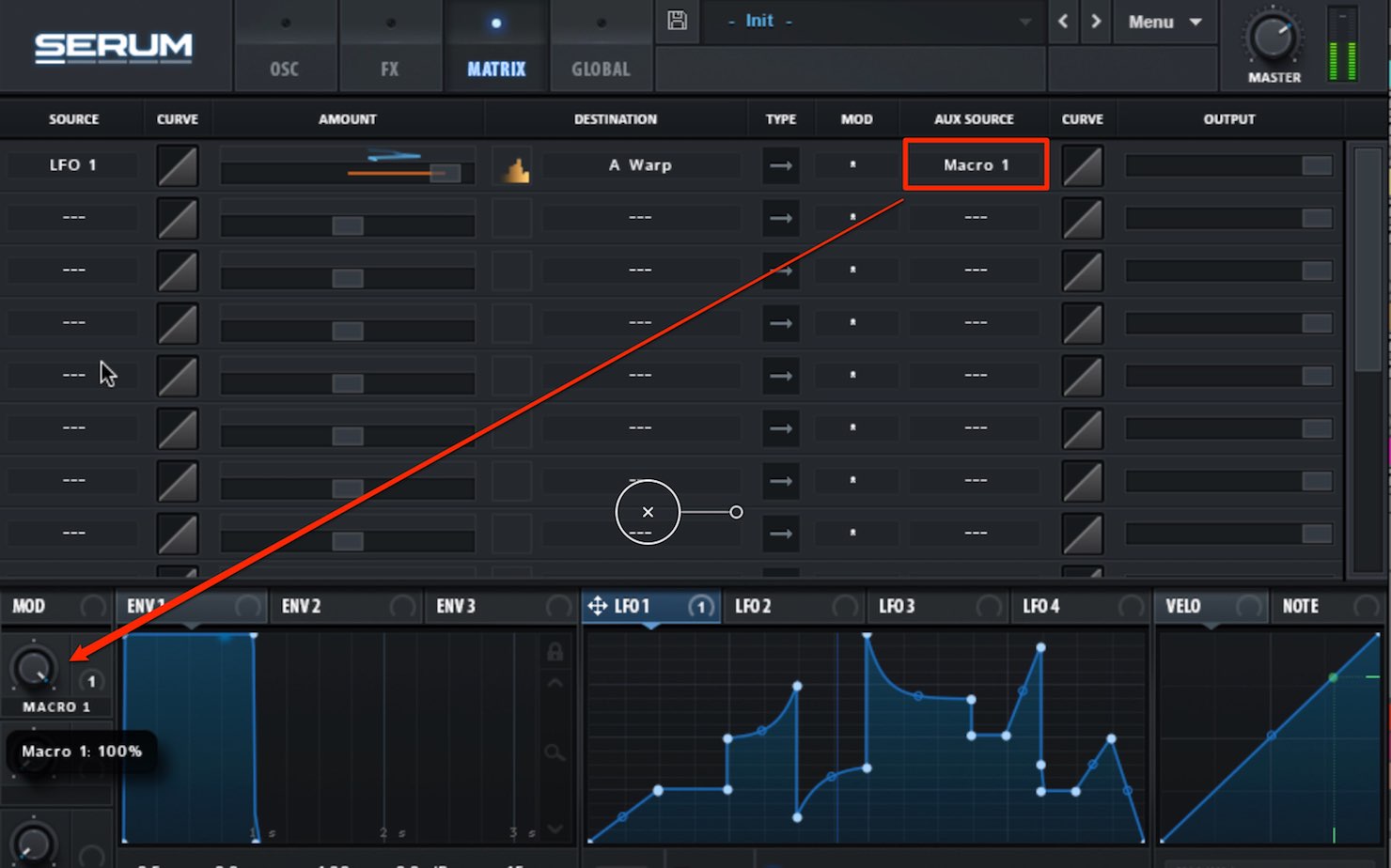
Multiple modulations can be set to “MACRO,” and controlled at once as well.
Simply select “MACRO” from the “AUX SOURCE.”
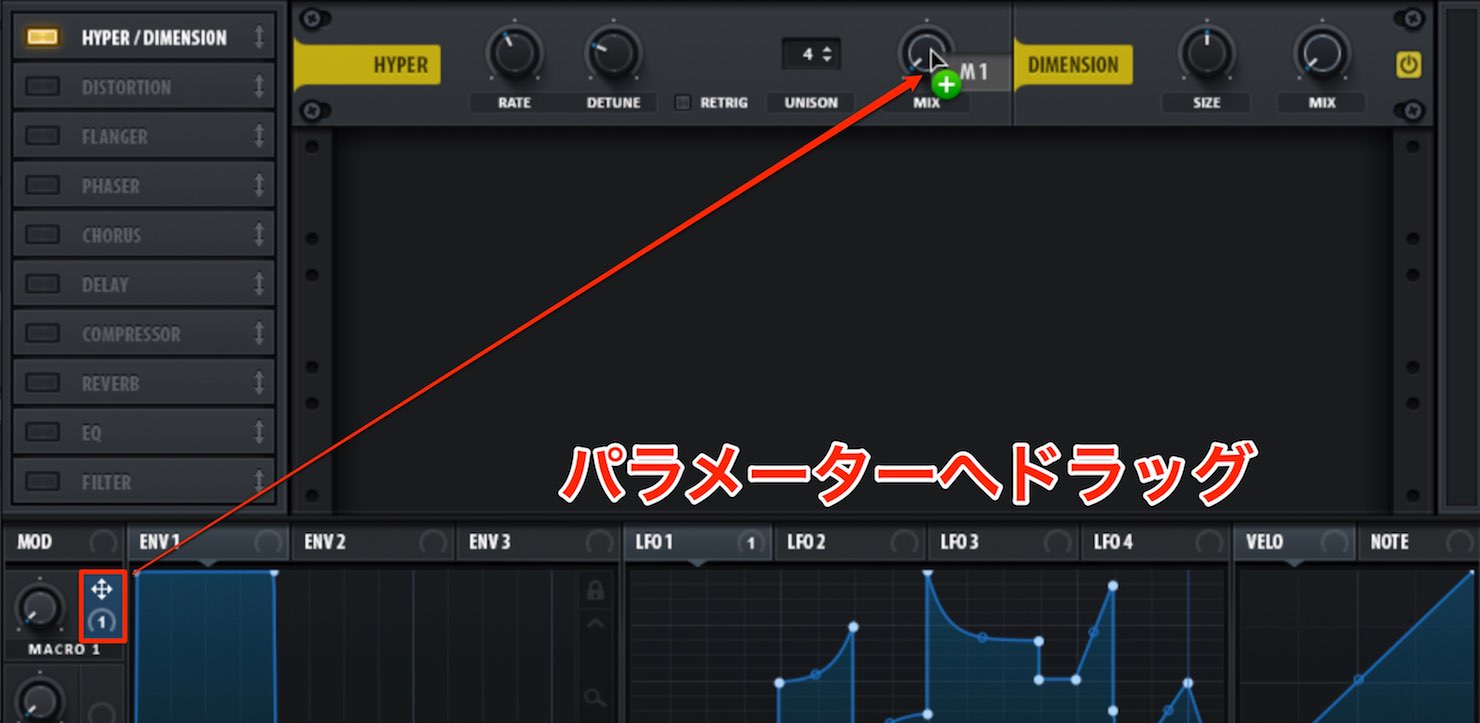
In addition, you can drag MACRO onto the parameter you want applied to it as well.








